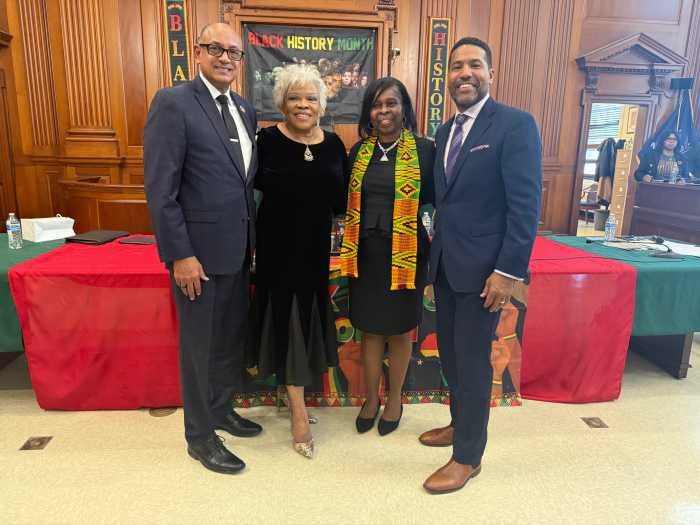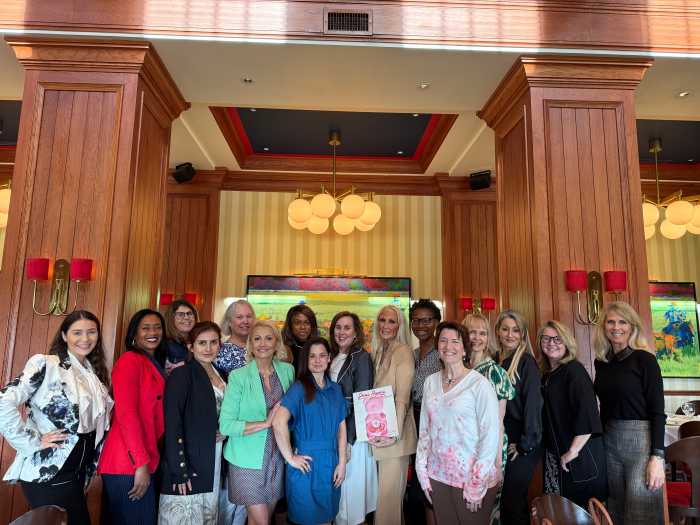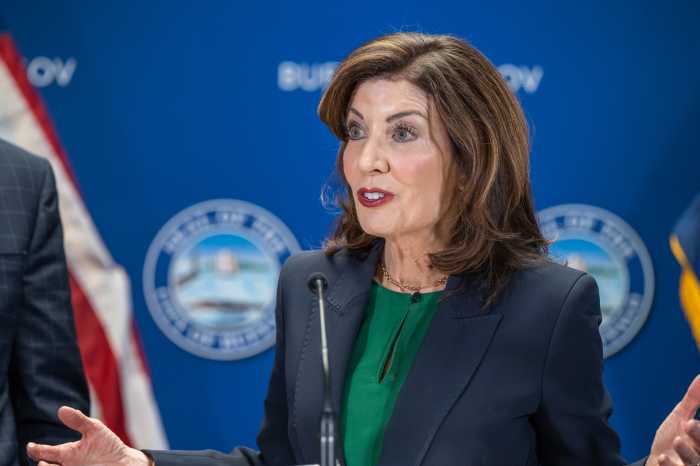There has been a major movement nationally to restore the right to vote for people with felony convictions who have completed their prison terms. As the state legislature readies to return to session next month, several Brooklyn and city lawmakers are pushing to front-burner this issue and have New York join Washington, D.C., California, and 18 other states that automatically restore the voting rights for thousands upon release from prison.
Senator Zellnor Myrie (D-Brownsville, Crown Heights, East Flatbush, Gowanus, Park Slope, Prospect Heights, Prospect Lefferts Gardens, South Slope, Sunset Park), Chairman of Committee on Elections, and other city officials have pointedly taken the lead on this issue.



Myrie, along with State Sen. and comptroller candidate Brian Benjamin (D-Manhattan), sponsored Bill A. 4987, which relates to voting and registration for convicted felons. Assemblymembers Latrice Walker (D-Brownsville) and Robert C. Carroll (D-Park Slope, Windsor Terrace, Kensington, Ditmas Park), are also championing Bill S. 1931, which provides a process for voter registration after people get out of prison.
“If our criminal legal system is truly aimed at rehabilitation, we are compelled to permit those who have successfully served their sentence to fully rejoin our society and have their voting rights restored,” said Myrie. “Voting is the right that safeguards all our other rights, and it is past time New York joins with other states across the country– red, blue and purple– to enable citizens returning to our communities to participate in our democracy and become stakeholders in our system of government.”
In 2018, Gov. Andrew Cuomo, through an executive order, gave back voting rights to people convicted of a felony in the state and is currently on parole.
“The governor has used his pardon power justly, to welcome people living in our communities into our democracy. But a future governor could depart from that practice,” elaborated Myrie in a Gotham Gazette op-ed.
“Disenfranchisement laws have deep roots in the Jim Crow era and have successfully infringed on Black Americans’ ability to participate in our democracy,” said Benjamin.
The Brennan Center for Justice (BCJ) published an extensive report on the historical impact that criminal disenfranchisement laws have had specifically on suppressing voting rights in Black and Brown communities, called “Jim Crow in New York.”
It stated that after 1865 and the passing of the 15th Amendment, 19 states passed criminal disenfranchisement laws, and by 1900, 38 states had some type of criminal voting restriction which usually convicted individuals long after their release from prison.
“States also adapted their criminal codes to punish those offenses with which they believed freedmen were likely to be charged, including bigamy, vagrancy, petty theft and burglary. Together, targeted criminalization and felony disenfranchisement stripped African Americans of their voting rights – and suppressed African American’s political power for decades. The discriminatory impact of these laws and practices continues to this day. Nationwide, 8% of the African-American population, or 2,000,000 African Americans, are disenfranchised. Given current rates of incarceration, approximately one in three of the next generation of black men will be disenfranchised at some point during their lifetime,” stated the report.
The report also pointed out that New York’s criminal disenfranchisement laws are nearly identical to the provision enacted 140 years ago.
As of 2020, according to The Sentencing Project, an estimated 5.17 million people are disenfranchised due to a felony conviction. The report also concluded that Black voters are disenfranchised at “a rate 3.7 times greater than that of non-African Americans.”
Patrick Berry, from the Brennan Center for Justice (BCJ), celebrated the law passing in California and is fully in support of this legislation passing in New York.
“Communities of color are more likely to be disenfranchised than white voters, and the reason for that racial bias is the criminal legal system,” said Berry. “In California and elsewhere there’s also a lot of confusion on who’s eligible to vote if you have a criminal conviction. They have parole, probation, alot of community supervision. A lot of people don’t even know the difference between parole and probation.”
Berry said there’s a possibility, even with the turbulent pushback against police and bail reforms this year, that Prop 17 will still be passed because it’s garnered bipartisan support before.
“There’s still a need for legislation to make it a permanent change,” said Berry. “The issue of rights restoration has largely been where we could get bipartisan support, and when I think of California, the coalition that supported Prop 17 had members of law enforcement, Republicans. In other states, like Nevada and Colorado, that was a bipartisan effort.”





